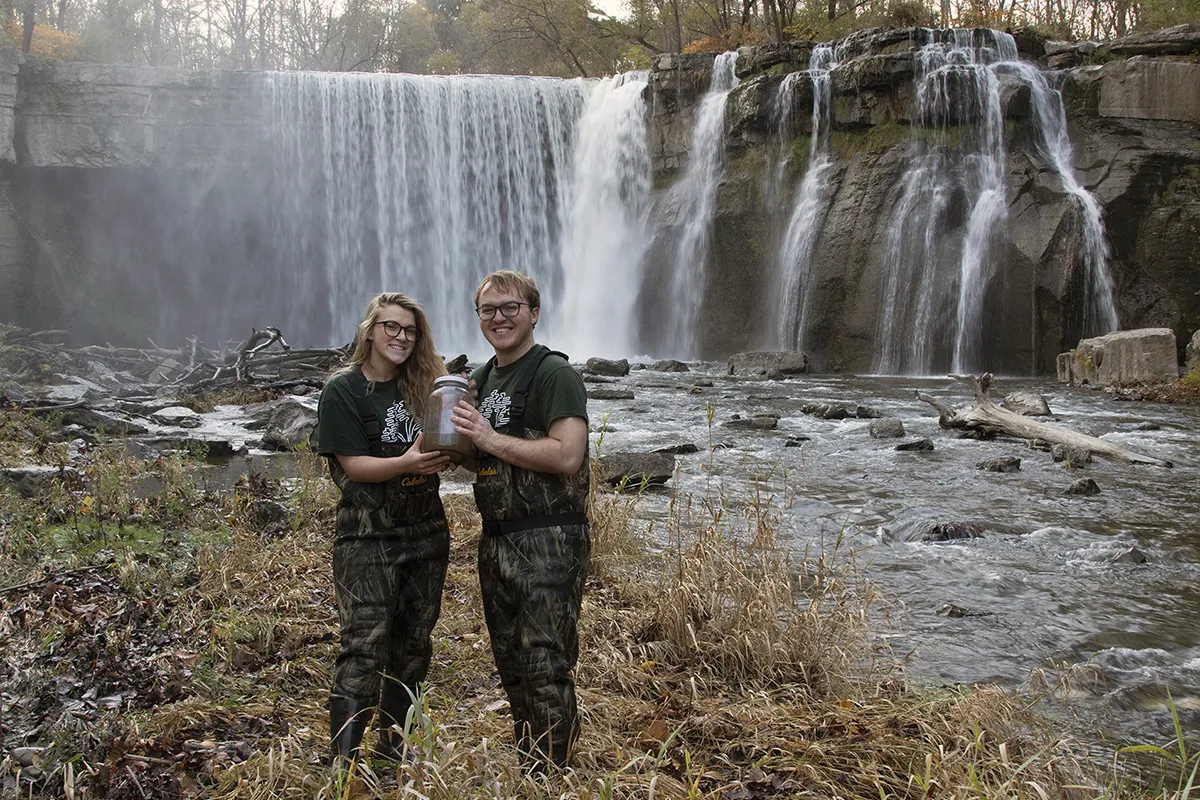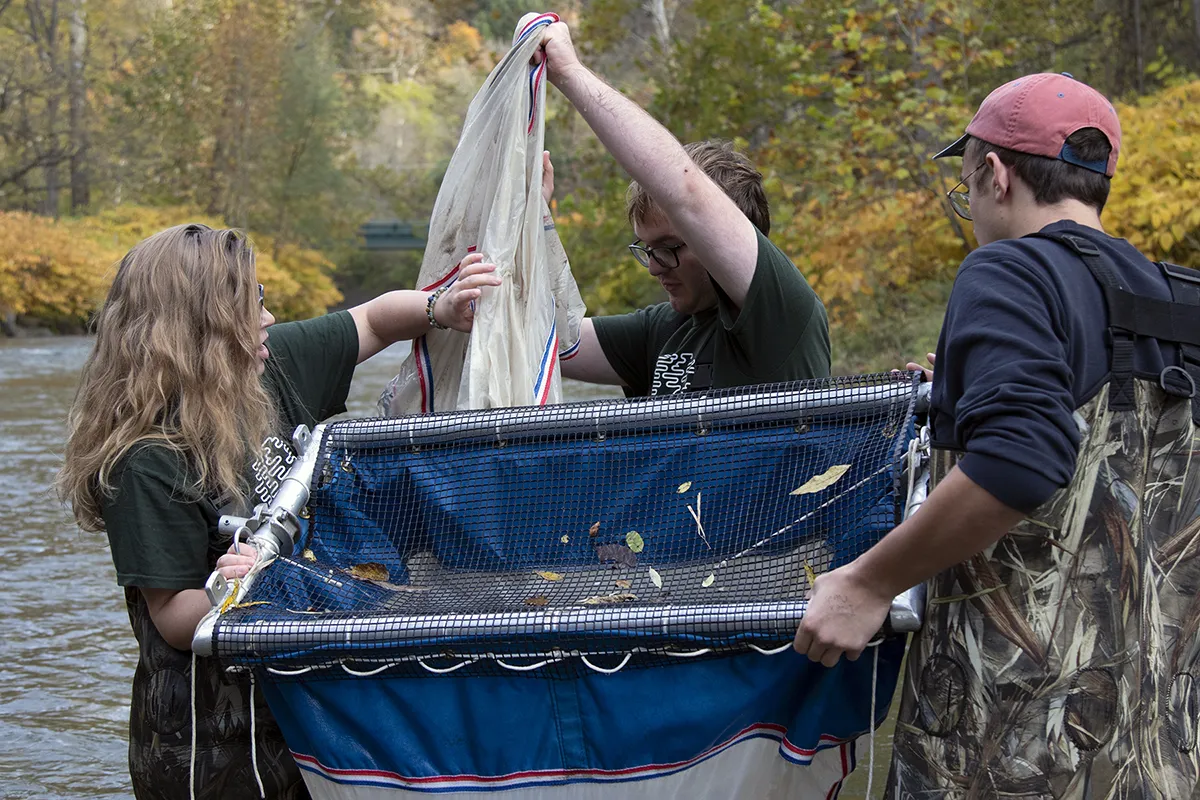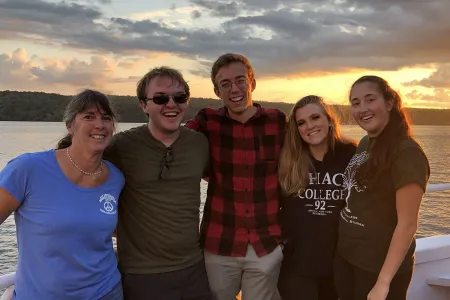We are all familiar with Ithaca College's beautiful and tranquil Cayuga Lake view. But what many may not know is that the serene lake is not immune to the microplastic pollution increasingly seen all over the world. Susan Allen, a professor in the Department of Environmental Studies and Sciences at Ithaca College, investigated the issue and found with her first Park Foundation grant that the lake contains more than 100 million microplastic particles. These pollutants threaten aquatic life, contaminate the food chain and may affect human health.
Allen was awarded a 2-year, $40,000 grant from the Park Foundation to continue her research and determine the origin of the microplastics.
“It is hard to stop the microplastics contamination if you don’t understand the source of the pollution,” said Allen. “With this grant, we will study major tributaries, snow, and water treatment effluent in connection with Cayuga Lake. We'll then develop action plans to reduce plastic use and encourage proper disposal.”


